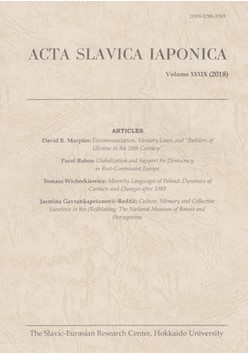Satire and Political Imagination in the Caucasus: The Sense and Sensibilities of Molla Nasreddin
Satire and Political Imagination in the Caucasus: The Sense and Sensibilities of Molla Nasreddin
Author(s): Bruce GrantSubject(s): Cultural history, Media studies, Political history, Pre-WW I & WW I (1900 -1919), Interwar Period (1920 - 1939), Source Material
Published by: Slavic Research Center
Keywords: Nasreddin playbook; Molla Nasreddin; Caucasus; Satire magazine; political motives in magazines;
Summary/Abstract: It is 2002 and I am in the village of Bash Shabalid, in the foothills of the Caucasus mountains, some six hours northwest of the Azerbaijani capital of Baku. I am there to look at rural religious practices and histories of Sovietization in a corner of the former USSR long thought by many as a home to its more tepid patriots. Taking a break one day, a local history teacher, Araz, heads with me for tea to the house of a farmer who has dug up some dozen earthenware pots in his fields, each pronounced to be of ancient vintage. It was everything one might picture of the ancient Caucasus region, of everyday life in a world area continuously settled for millennia, where the ground at times bursts with the objects and scenes of its past. Araz gestured to one of the larger pots and said, “Georgian archaeologists used to come here regularly and buy these from us. Then one year one of us went to a museum in Tbilisi and saw that the same pots had been labeled ‘Georgian.’ Georgian pots! From our village!” I asked him why the classically shaped urns, from a long-ago period when the divisions between states were less pronounced, could not indeed have been Georgian, and what it would mean to get them back. He looked at me briefly, shook his head, and said, “We have a proverb for that. ‘Su axan arxa birdə gələr.’” Water will return to the channel where it once ran.
Journal: Acta Slavica Iaponica
- Issue Year: 2020
- Issue No: 40
- Page Range: 1-17
- Page Count: 17
- Language: English

